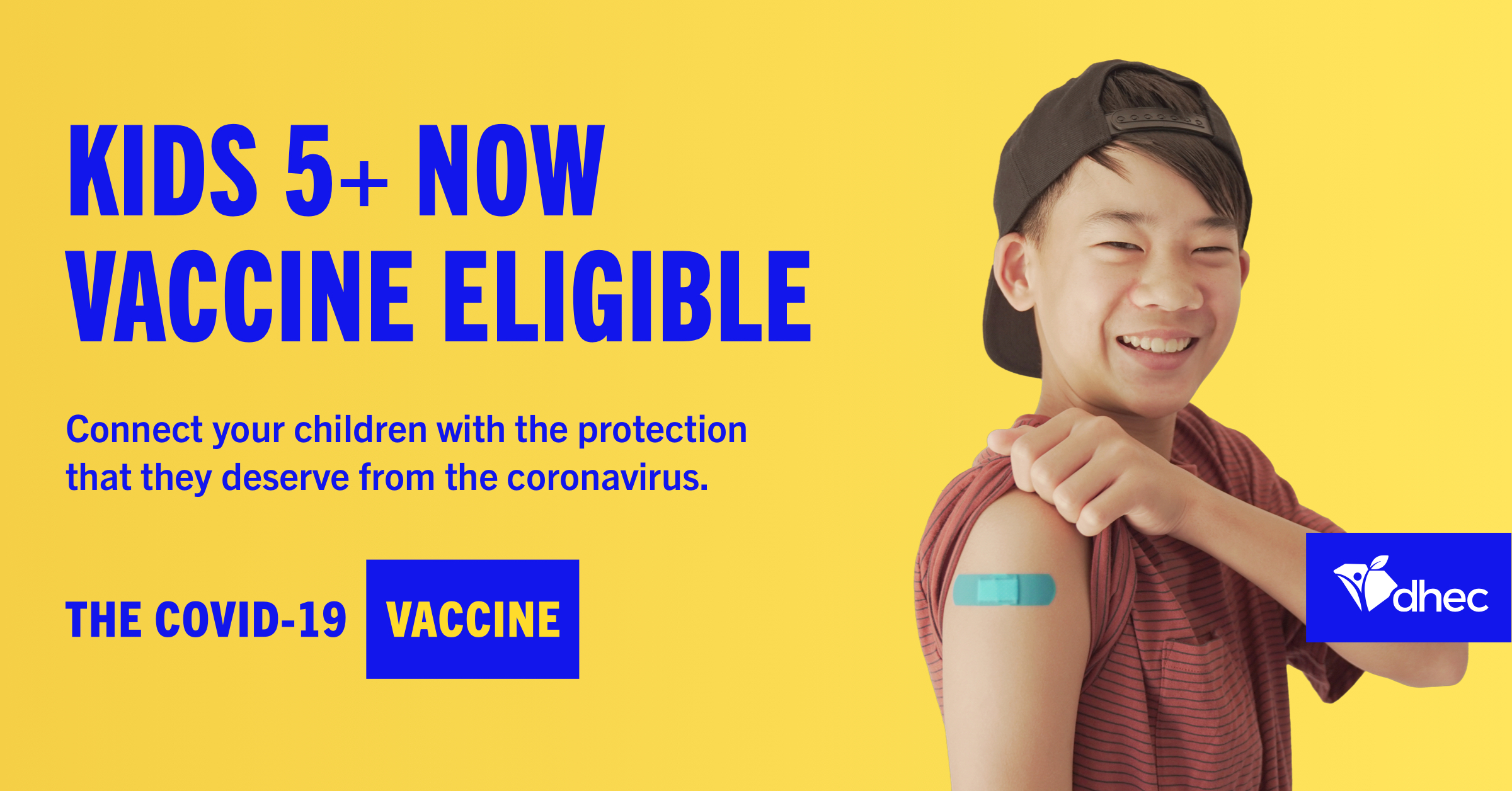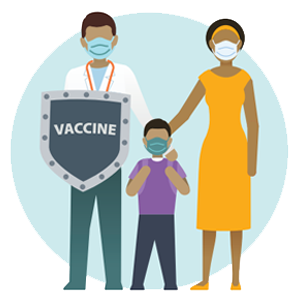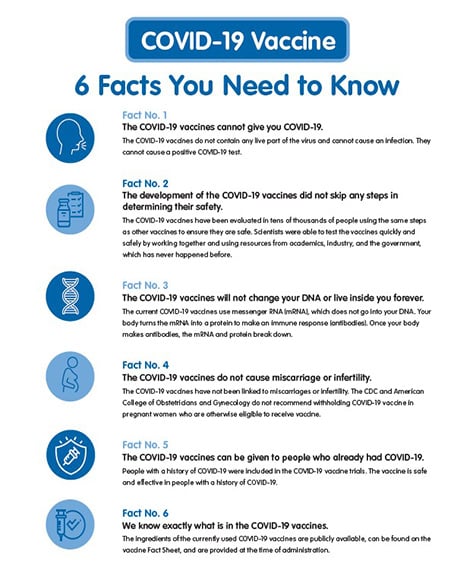
It was a rough day that Friday morning. He was a 41-year-old otherwise healthy male who was afraid to get the vaccine because he wanted to “wait and see”. Unfortunately, COVID got him before he had a chance. He came in with pretty severe disease but was holding his own until the week before when he started to deteriorate rapidly. His oxygenation became severely diminished and we had to put him on life support. We were forced to put him in a medically induced coma, paralyzed him, and put him on his stomach. Despite throwing everything we had at him, his oxygenation continued to worsen. Friday morning it was clear that he was not going to make it through the day. This all weighed heavy on the ICU team but it became overwhelming when his 3 teenage children came to see him. We watched as it sunk in that their father was going to die that day. It was his youngest son’s birthday.
He wanted to wait to get his vaccine because he was afraid of the side effects and wanted to wait to make sure nothing new was learned. The mistake he made was a common one that people make when assessing the risks and benefits of a decision. We are often focused only on the risk of action and not on the risk of inaction.
In reality, every decision we make is a balance of risk and benefit. This is true of a purchase at a restaurant and a decision on medical intervention. They only differ in the height of the stakes. Paradoxically, not deciding is a decision to not decide. So decisions are unavoidable. When we evaluate the risks and benefits of vaccination we need to consider the risks of action and the risks of inaction.
Every decision we make is a balance of risk and benefit
The problem nowadays is that everything related to vaccination (and COVID in general) is extremely heated, emotional, and political. This creates so many layers of complication that it is almost impossible for most people to make an objective assessment of the data. What’s worse, if you feel that the sources of the data are biased against your firmly held belief structure it is unlikely that you will take them seriously.
When you center the conversation on what to do with children, the temperature gets turned up several notches more. It may be that the age of the people will alter the risks and benefits but the fundamental decision analysis is the same. It is simply a question of whether the risk of getting vaccinated is less than the risk of not getting vaccinated. It does not matter if the risks are small in the grand scheme of things. It only matters the risk of one decision relative to the other.
Part of the reason this is difficult is because it is hard for us to conceptualize the risk of inaction on both an emotional and intellectual level. It requires more mental effort to see the link between inaction and events. For example, if I get vaccinated and have an adverse effect the causal relationship is clear, vivid, and salient. This elicits a powerful emotional response which will cause me to overweigh the risk of vaccination. If I do not get vaccinated and get infected, the causality is not nearly as clear. I could always maintain that I would have become infected anyways. It seems more and more that people are not interested in putting in that extra mental effort.
With that as an introduction, I will give you the data as I understand it and how I made the decision to vaccinate my own children. I am going to strive to help you discover both sides of this equation. Keep in mind that choosing the lower risk option does not mean that the risk will come to fruition. Unfortunately in life, aside from your mortality, nothing is guaranteed.
The Risk of the Vaccine

The Pfizer vaccine was studied in 4,600 children of which, about 3,100 were vaccinated (the rest got the placebo). Children who were given the vaccine were monitored for side effects for at least 2 months after the second dose. Side effects were mild and consistent with what parents and pediatricians see after immunizing children against the flu (aches, fatigue, sore arm, etc) There were no serious side effects in the trials of the vaccine which was 91-100% effective in protecting against COVID-19 depending on the age. Children in the 5 to 11 age group have a more robust immune system than older children and adults, so they were given a lower vaccine dose. They were still able to produce more than enough antibodies to protect against infection. This lower dose would also lower any risk of adverse events. Millions of children aged 12 to 17 have received the vaccine without report of any serious side effects. What’s more, serious side effects that could cause a long-term health problem are extremely unlikely following any vaccination of any type. Based on the way the vaccine elicits an immune response there is no reason to think it would be different for the mRNA vaccines.
What About Myocarditis?
A quick lesson in Greek. MYO means muscle, CARD means heart, and ITIS means inflammation. While myocarditis is a scary-sounding name it just means inflammation of the heart muscle. There have been several reported cases of myocarditis, primarily in teenage males, usually within a week after the second dose. Even though it sounds scary, all the kids improved with medications like ibuprofen. It appears to occur in about 5 out of every 100,000 people under 30. There are about 25 million kids in that age range so it would be expected that a few hundred kids in the United States would have this outcome which, again, did not cause any significant harm.
The Risk of COVID-19 in Children
Up to 250 out of every 100,000 children who get the disease will die
Now that we see the risk of the vaccine, we now need to see the other side of the equation. What is the risk of not getting the vaccine? Fortunately, children have been mostly spared from the severe disease seen in adults with fewer deaths. With that said, there is still a risk of serious disease and mortality. The numbers as of 11/11/21 are that somewhere between 100 and 1,900 out of every 100,000 kids who get COVID will have disease severe enough to require hospitalization and up to 16 out of every100,000 children who get the disease will die.

Many children have acquired a multisystem inflammatory syndrome (MIS-C) as a result of the COVID-19 infection. It is rare but serious. Like the vaccine, it can cause myocarditis. Unlike the vaccine, it causes other serious inflammatory effects. It appears to occur in about 1 out of every 100,000 kids. That’s 1 out of every 100,000 kids in the country, not 1 out of every 100,000 who get COVID. That number is higher. Close to 50 American children have died from MIS-C since the pandemic began.
Most people understandably focus only on the risk of severe disease and death from COVID-19 but there are other side effects of COVID-19 that need to be considered as well. While exact rates are difficult to determine because of heterogeneity in research design it is known that children who get COVID-19 can experience long-term effects including tiredness or fatigue, headache, trouble sleeping, trouble concentrating, muscle and joint pain, and chronic cough.
Other Benefits of the Vaccine
Whatever your feelings are about the government and individual response to the pandemic certain levels of restrictions are likely to remain in place as long as case levels are high. These restrictions include those placed on school children. There will likely be a different set of restrictions for vaccinated versus unvaccinated children. Being free of some of these restrictions may benefit your child’s mental health.
Summary
What this means is that, while extremely small, the risk of long-term effects, hospitalization, and death are real and need to be considered. The risk of vaccination is also extremely small, almost certainly smaller than the risk of a child getting severe COVID. This does not even include the societal benefit of decreased transmission with vaccinated children. I worry that people are making decisions not based on a cool appraisal of the evidence but based on emotional responses triggered by prior beliefs or dramatic and exaggerated reports from the media, mainstream, or social. It is hard for me to find an argument based on the evaluation of risk and benefit that would lead to the opposite conclusion although I would love to hear one. Unfortunately, I usually only hear the emotional and political arguments. I thought I would tell you how I respond to the common question I get.
But We Don’t Know the Long Term Side Effects of the Vaccine!?!

This is certainly true but we also do not know the long-term effects of COVID-19 infection. There will likely be long-term consequences of the infection in children. Other viruses are known to increase the risk for cancer several years down the line. Many conditions have been hypothesized to have been triggered by viral infections. For example, many experts believe viral infections are the cause of chronic fatigue syndrome and many autoimmune diseases. It could be the same for COVID-19.
The vaccine only affects the muscle cells in your arm while the virus infects cells in all parts of your body. It is, therefore, more reasonable to assume that the risk of the virus causing long-term harm is greater than the risk of the vaccine causing long-term harm.
But Kids Don’t Get Sick From COVID So Why is A Vaccine Necessary !?!
Indeed, kids do not get seriously ill in high numbers from COVID-19 but they can get very sick. But remember that evaluating the risk of only one side of the equation gives you only half the assessment. The risk of harm from the vaccine is much much lower. In other words, the risk of something bad happening to your child is less with the vaccine than without.
Doesn’t the Vaccine Increase the Risk of Infertility??
This is pure fiction. There is no evidence of infertility from the vaccine, nor is there any plausible reason to make this connection. Here’s a link to a story explaining what’s fueling this myth. There is a long history of those opposed to vaccination fabricating information to justify their claims and scaring people about fertility is a successful tactic.
I Don’t Trust The Government!
I hear you and agree that the government is not always the most trustworthy of agents but this is not just our government that is recommending vaccination, most governments, every major medical society, and the majority of experts in the field are recommending it. In keeping with our theme, look at both sides. You may not trust the government but why should you trust the Facebook post from a person with a longstanding and outspoken hatred of all things related to vaccination?
I Don’t Want Bill Gates Tracking My Kid With a Microchip!!
I have no answer for these folks.
Our family’s Decision
Life is essentially a long string of choices. Many we make through action, many we make through inaction. There is no way to sit this one out. In the opinion of almost everyone who knows, you are putting their long-term health at greater risk of harm by not having them vaccinated. It’s as simple as that. The only problem now is finding time in their hectic little schedules to get it done.
Daniel,
Excellent article…..my 5 year old granddaughter Hannah got her vaccine last week.
Take care, Lisa
LikeLike
All four of my eligible grandchildren have gotten vaccinated, and we are breathing a sigh of relief. Your article is spot-on, Daniel. My office is fully vaccinated and has been for sometime (and we older folks have been “boosted”). When we heard the rumor about the microchips, my reaction (to the amusement of others in my office) was that I got someone else’s microchip, which helped explain my odd behavior. The world is full of whack jobs.
LikeLike
Thank you for your article. I dont see that you address the need in any great detail for vaccination for Children who have had already and recovered Covid. Yes we understand that there are variants that may will likely be with us for some time, but the variants that we have seen while more contagious in terms of transmission rates seem to have the same if not a reduced fatality and hospitalization rate according to most studies. Additonally the vaccinations that we have today were note tested against those variants in terms of initial efficacy. That said, Why in your medical opinion is there a need for vaccination (given whatever shortcomings in long term data we have). Similar to the Flu where some of gave our children Flu Shots and some didnt. Many parents who have children who have had and successfully recovered from Covid dont see the need. Your thoughts?
LikeLike
You never know how strong of an immune response a prior infection stimulated in an individual because it depends on viral load exposure. The vaccine provides a stronger and more consistent immune response and has clearly been shown to prevent severe disease, even in children where severe disease is rare.
LikeLike
Thank you for responding. The Vaccine has indeed been shown to prevent severe disease to be certain for those who are immuno compromised or other wise more susceptible. I think the larger point that was being made was that for those individuals who have already had Covid and whose children have had Covid with little consequence other than flu like systems – it seems pretty clear to be weary of severe disease is not really relevant to them so a need for any vaccination seems relatively non existent. In the long game the math just does not add up for those who have already been through it with little to no impact. -Best EM
LikeLike
The data shows that vaccination prevents severe disease in all age groups. As rare as severe disease is in some groups , severe adverse effects of the vaccines are much more rare. This is also not to mention the impact on other long term consequences of the virus.
The risk of something bad happening to you is clearly less with the vaccine than without, even in low risk groups and even in those with prior infections. Just because the benefit is more pronounced in higher risk groups doesn’t mean it is absent in lower risk groups. Low risk does not mean no risk.
LikeLike
Hope your well.- I see you didnt publish my last comment- its candidly tough to validate your comments when someh what contrarian yet – honest and engaged remarks are ignored- would have appreciated an open Dialogue- hope all is awell
LikeLike
sorry, but it’s hard for me to keep up. this is not my primary occupation.
LikeLike